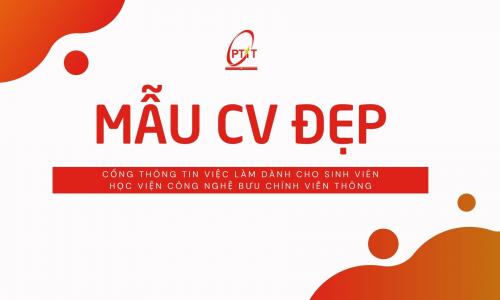Strategy to Research Your Dream Company

-
Super Admin
-
Feb 27, 2024
-
3,019
You've filtered out a few dream companies from countless businesses. But how do you know if a company truly fits you? Or which company is the best choice at this stage? We have a formula for you to apply.
Understanding a company is an essential step in the job search process. Only when you truly understand the employer can you "choose the golden face" and land a job you're happy with.
Researching a company typically serves three purposes: evaluating if you're a good fit for the company, comparing companies, and impressing recruiters during the interview process. With the company research formula below, you can accomplish all three of these things easily.

1. Choose a Company with Shared Ideals:
Besides salary and benefits, 43% of candidates say they are attracted to a new opportunity because the job has meaning. Research the company's core mission to see if it aligns with your ideals, goals, and interests. For example, if you're interested in a company's social responsibility, choose a company with similar views. This screening process saves time for you and the recruiters from the start.
2. Learn about Employee Benefits:
To attract potential candidates, companies often offer various benefits such as health insurance, annual travel, flexible working hours, gym facilities, etc. Consider which benefits matter to you when choosing a company.
Also, pay attention to what employees say about these benefits. Are they as great as advertised? If you know someone working at the company, it's easy! If not, you can "take a tour" on the company's website, fan page, or LinkedIn.
3. Understand the Company's Business Activities:
How does the company make money? Who are their primary customers? Is the company well-regarded? Is it a startup or an established company? How has it developed over time?
Finding answers to these questions helps you understand the company's stability, the challenges they face, and your potential role in the future. You can find this information on the company's website or on other professional review sites.
4. Scan for News:
Websites or Facebook pages are the "public face" of a company, but external perspectives are also valuable. Look up the company's activities on Google, newspapers, industry magazines, etc. Knowing about their recent prominent campaigns or projects can help you impress recruiters. Moreover, you can assess the company's reputation or products by "snooping around" in customer forums.
Pay special attention to "red flags" such as recent significant changes or scandals (if any). Any significant event like mass layoffs, mergers or acquisitions, CEO changes, stock issuances, etc., may present opportunities but could also create an unstable work environment.
Note: Misinformation and fake news are rampant online. Select information from reputable and diverse sources to avoid unnecessary misunderstandings.

5. Learn about Leadership:
When interested in a company, find out who is at the helm. The leadership plays a significant role in the company's operations and culture.
Identify key figures (CEO, department heads), read their biographies, and check their personal Facebook pages. How do they represent the brand or work in this industry? Some leaders may be interviewed in the press or have written books—these publications provide insights into their personalities and the companies they represent.
6. Ask Friends and Colleagues:
Ask trusted friends or colleagues about your dream company. They may have valuable insights or insider information. If you're a recent graduate and lack connections, ask your professors or alumni who have worked in the industry.
7. During Interviews, Share Selective Information:
After thoroughly researching your dream company, you may be eager to share everything you know during the interview. However, be cautious! Some of the information you find may be outdated or inaccurate. If you come across sensitive information, think carefully before mentioning it in the interview.
Instead, use the information you've gathered to demonstrate your skills and experience relevant to the job description, department goals, and the company's vision.
Researching a company may take time, but it will undoubtedly benefit your job search process, especially when you're looking for a stable, long-term job.
Don't go to an interview without knowing the company's mission, vision, or the profile of its leaders. This mistake is like going into battle unarmed! You can only win if you're equipped with the right skills and knowledge. If you can't spend the whole day researching the company, allocate 30 minutes to 1 hour each day from the moment you receive the interview invitation. Small achievements lead to significant progress—gradually, you'll be ready to "go into battle."










